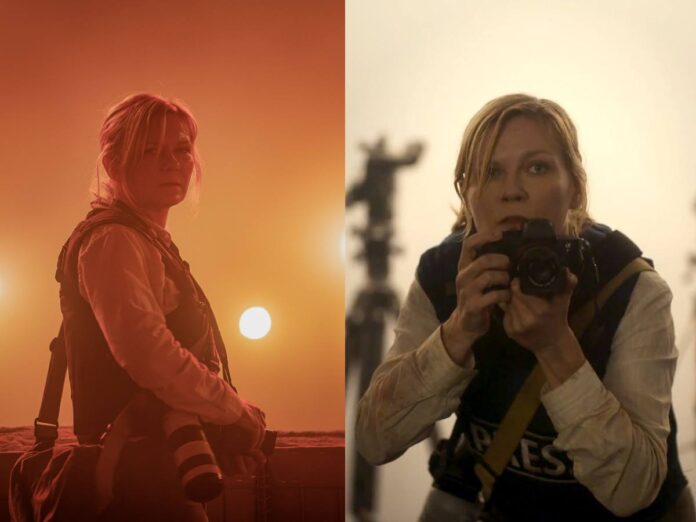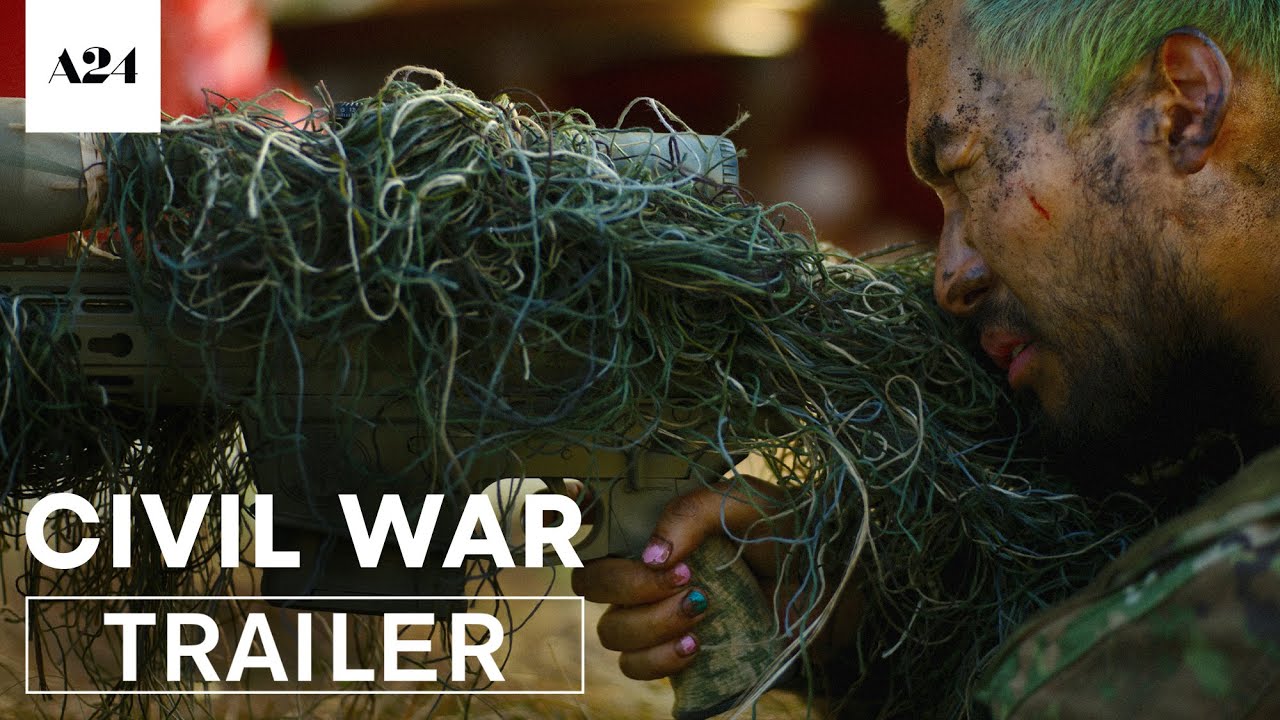When it comes to dystopian thrillers, Kristen Dunst is new to the game but that doesn’t mean she can’t play. Alex Garland’s latest creation, ‘Civil War‘ is the movie of the moment with its semi-realistic storyline and right-down-the-nail argument.
Premiered at South by Southwest earlier this month, the Dystopian thriller has already ignited debates and discussions. The intense political plot line of the movie has definitely added fuel to its fiery narrative.
Related:Top 10 Most Anticipated Movies Of 2024
‘Civil War’: Plot And The Cast
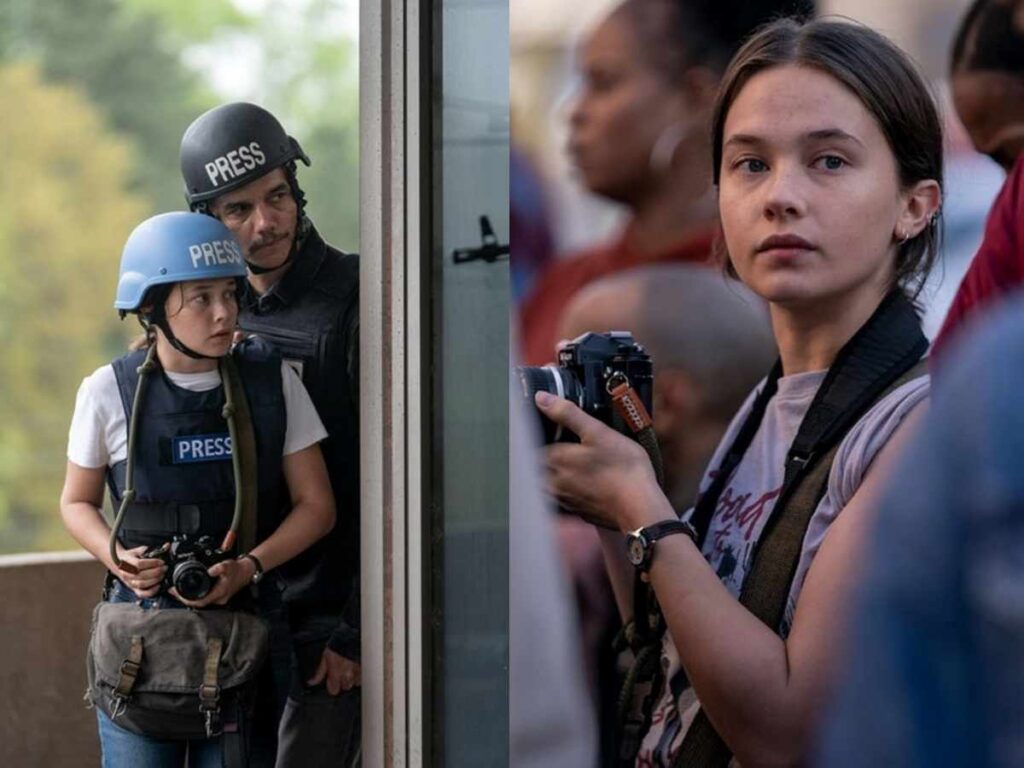
To paint a picture of this movie’s chaotic scene, imagine a world torn asunder by political strife, where the fabric of society comes undone right before our very eyes. This is the backdrop against which the ‘ Civil War’ is promising a chilling glimpse into a fractured America. One where the states of California and Texas decided to overthrow the existing government by uniting their defences calling it ‘Western Forces.’
At the heart of this narrative is our protagonist Lee, a seasoned photojournalist played with gripping intensity by none other than Kristen Dunst. As Lee sets off on a journey through the war-torn country, she confronts the harsh realities of battle. Her camera bears witness to the horrifying result of conflict and displacement, telling stories of those caught in the crossfire.
Joining Dunst is the talented cast of ‘Civil War’ who have proved their skills with their masterful prior performances. Some prominent names on that list are Cailee Spaeny, Wagner Moura and Nick Offerman. Each brings depth and gravitas to their respective roles in Garland’s thought-provoking exploration of society’s fracture lines.
In case you missed:Top 25 Science Fiction Films Of All Time
The Controversy
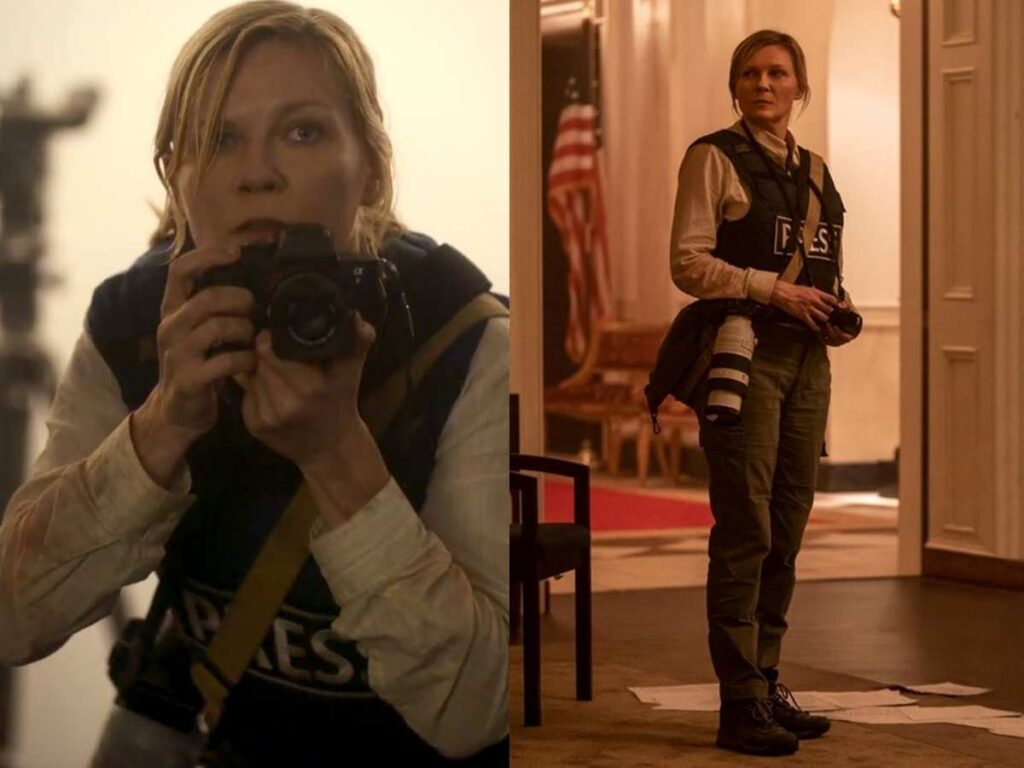
Despite its fictional premise, ‘Civil War’ strikes a chord with its very moment-resonating themes and poignant message. The director of the movie has refused to let on the cause of the country’s split and the very carefully put-in alliances send a message that is rather controversial. While the narrative of the movie also swims through the treacherous waters of political commentary, its heroine suggests that the appeal of this movie is rather universal than partisan lines.
In a conversation at the SXSW screening, Dunst commented, “The movie isn’t partisan though, in any way. It’s not, it’s not about right or left. That’s the total opposite message of this film. It’s really about humanity and what a civil war does to a country and the horrors of it. So it’s more of a warning than anything else. And I feel like it does shake you because it’s very intense, it feels very real to film. And I think that’s why it’s affecting everybody so much.”
At its core, the ‘Civil War’ serves as a cautionary tale to urge viewers to reflect on the consequences of division and discord in our home.
Director Alex Garland’s Word On His Fictional War
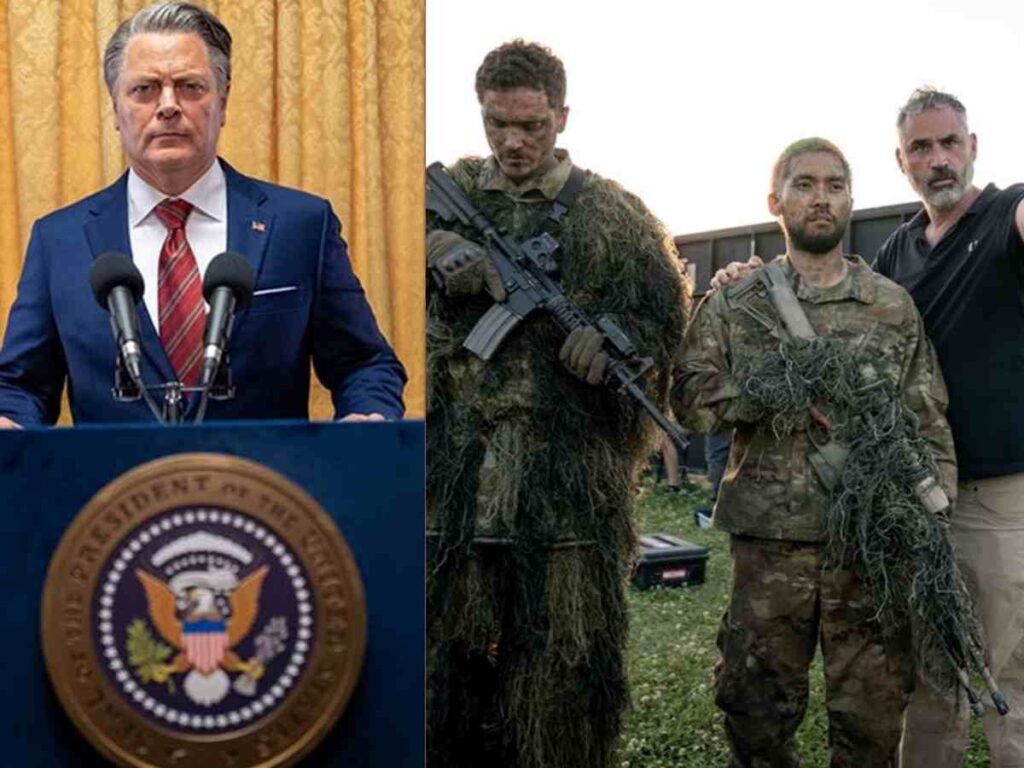
As for Garland, the visionary director sees the ‘Civil War’ as a catalyst for meaningful discourse. He believes it challenges audiences to confront uncomfortable truths and engage in critical reflection on the actions taken. Treading in the hot waters the English filmmaker does acknowledge the narrative going on about his movie. He said, “It is not asserting things, I mean I guess it’s asserting some things but it’s a conversation, and that means it’s not a lecture.”
Expanding the conversation of the movies and their narratives he begins, “There’s two kinds of filmmakers. There’s filmmakers who sort of, in a weird way, they make films about the films they love, which is a perfectly good thing to do. And there’s others that are in some way reacting to the world around them.”
Inching close to the controversy he continued, “And I’m in the second category. And so is it connected to the world? Yeah, it’s connected to the world. That’s more than just this country. Some of the things being discussed in Civil War exist globally. They’re not distinct to America. They might be contained here, but they’re not solely here.”
Summing up the entirety of his April 12th release he said ‘Civil War’ is, “a sort of love letter to journalism and how important it is.”
You might also like to read:

